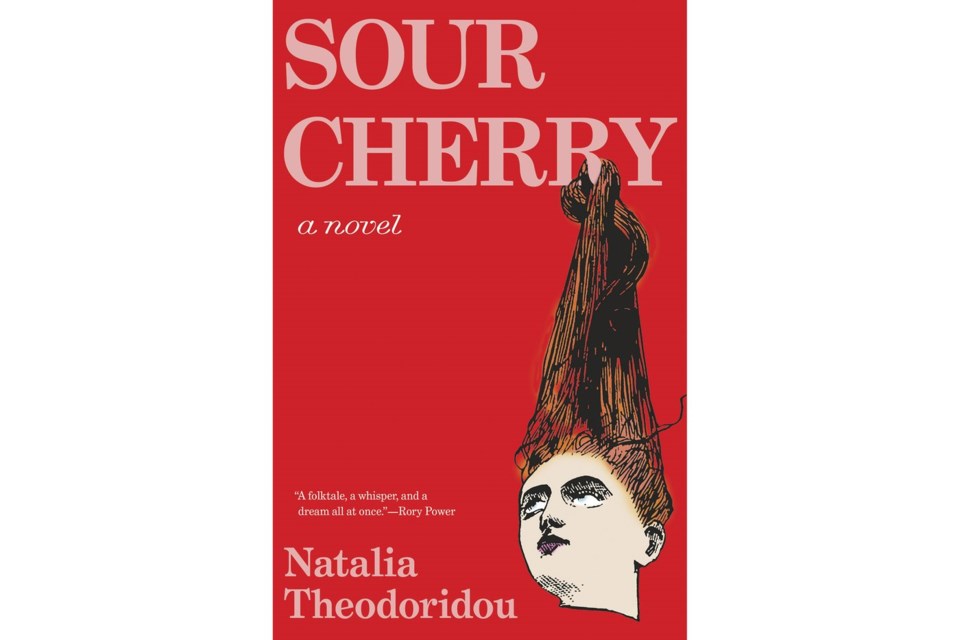The modern fairy tale is a tricky thing, what with phones and cities and all the trappings of now that tend to suck the magic out of a story and make it impossible to suspend disbelief. But Natalia Theodoridou’s debut novel aces the assignment.
“Sour Cherry,” out Tuesaday from Tin House, is a masterfully crafted reimagining of the tale of Bluebeard, a serial wife-killer who punishes the women's curiosity with death.
Theodoridou’s modern take grapples with abuse, generational trauma, dominance and culpability. It begins with Agnes, called upon to be a wet nurse for the local lord in an unspecified time period in an unnamed-but-possibly-European country, told by an unidentified narrator, “I,” to a child, “you,” occasionally interrupted by ghosts of the women we’ll come to know.
It’s a story within a story of a fairy tale told in haste and earnest to convey powerful messages through accessible tropes, starting with one woman's sorrow redirected to caring for another woman's son.
Even though Agnes loves the little lord whom she nurses and tends to, he also frightens her. What begins as small abnormalities — fingernails that grow too fast and the strong, unexplained smell of soil on the baby — transforms into something far more sinister as he grows into a forest of a man who brings pestilence and death with him wherever he goes.
The narrator breaks from the story to address the passage of time and build tension. She dips into modernity, referencing plays and phones, and mixes up details so you're never quite sure which pieces of the story are true and which are smudged or allegorical. Further thickening the haze, references to other tales are littered about, whether they be repurposed snatches of Greek myths and urban legends, or stories that characters tell each other within the narrator's story.
Every bit the fairy tale writer, Theodoridou leans heavily on sensory nature descriptions and takes short asides for what would be considered platitudes if they weren’t so strange, and echoed in the narrator's characters sometimes chapters or even lifetimes apart.
The whole time, a sense of danger lurks but is not named nor faced head-on.
Like a magic eye picture, “Sour Cherry” is a horror or thriller when viewed at one angle but, tilted ever so slightly, it’s a myth, legend or bedtime story. It’s a tale of buried pain personified as a curse, a beast, a pestilence that follows the family, the bloodline. The fairy tale style only serves to make the truths within it truer, methodically marching forward through highs and lows. The author perfectly captures how abuse is shrouded in inevitability, the way it's so often left unaddressed in society, and the seeming impossibility of leaving.
“Sour Cherry” is beautiful and harrowing. With a writing style that had me mesmerized from the first page, Theodoridou has an amazing talent for storytelling that’s so effective that the ending — while predictable and maybe even unavoidable — still stunned me and moved me to tears.
___
AP book reviews: https://apnews.com/hub/book-reviews
Donna Edwards, The Associated Press




